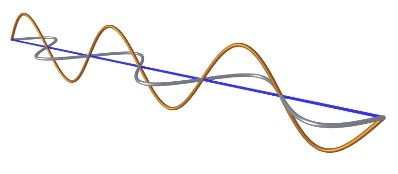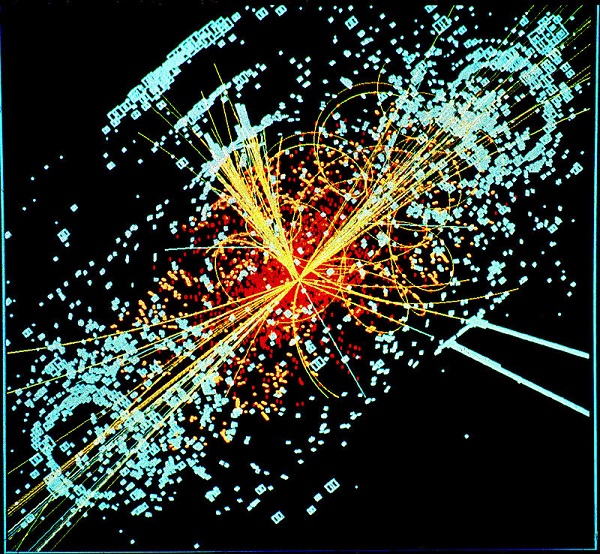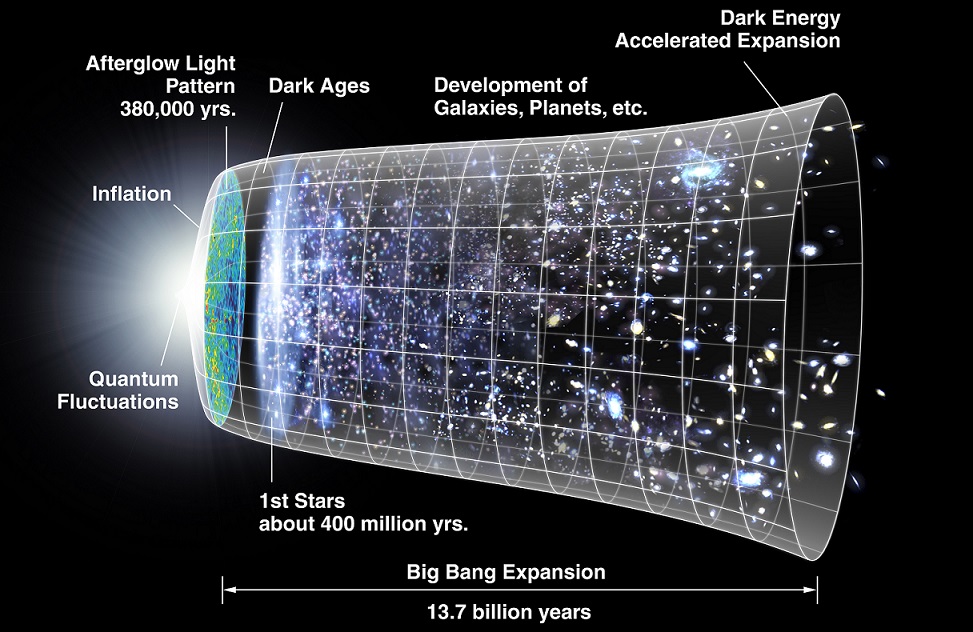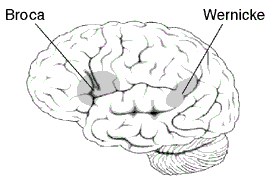Time
Article curated by Rowena Fletcher-Wood
Time seems like an intuitive quality of the universe, and the ideas of past, present and future seem unavoidable. But what is it anyway? Our sense of the reality of time falls into two areas: individual perception and physical formulation, the meeting of psychology and physics. We can measure time in terms of regular events: the Earth's journey around the Sun, the rotation of the Earth, or the vibration of a caesium atom. We don’t yet know how to measure our neurological responses to the experience of time.

Have you got time for that?
Einstein’s theory of relativity maps time as the fourth dimension, but it’s not quite the same as distance and direction: afterall, time only seems to go forwards. And in physical equations it differs by a single, inexplicable, yet practically necessary minus sign. The arrow of time maps entropy: the element of chaos, which, according to the second law of thermodynamics (and experience), always increases. Crumble a biscuit – easy – but put that biscuit back together? Not without a lot of energy input! Release a gas into a room, and it spreads out evenly, but collect it all back up, impossible! Time is what keeps everything from happening at once. Ray Cummings “The Girl in the Golden Atom”, 1922. If time does stop everything happening all at once, why does that matter? In atom-sized interactions, the arrow of time is almost invisible. You can imagine atomic collisions happening in either direction with ease, and they don’t ever look backwards, or like order is increasing. Perhaps this is why quantum theory has so much trouble with relativity theory: they just don’t gel. If all physics is to be united together into one grand theory, quantum theory and relativity theory have to sort out their differences, but quantum interactions don’t seem to notice time. They don’t need it. It may as well not be there. Relativity is concerned with the problem of perspective. If you stand still on a moving train, it looks to you like the platform is travelling away rapidly, not the train. Bung another train in the works and it only looks like it’s travelling at the differences in your speeds. This is why you get travel sick. So where does time fit into relativity theory? Physicists noticed that if you put one of a pair of identical clocks in a jumbo jet and fly it as quick as you can, when you get back to the first clock on earth, slightly more time (just a few seconds) has passed on the fast-moving clock than the earth-bound clock. What does this tell us? Time is not constant. Maybe (as far as we know) it only travels forwards, but it can certainly travel at different speeds. This experiment has been repeated over and over in different forms. It continues to get the same result. You also get shorter if you travel fast (length contraction) and heavier. This thought weirded out a lot of physicists for a while until Einstein (who was pre-jumbo jet and had therefore examined time dilation in other ways) pointed out it only happens when you approach the speed of light. Time is constant day to day. Maybe, he suggested, we should throw out the idea that time is constant and choose something different instead – like the speed of light in a vacuum.

 2
2

 2
2

In an experiment called OPERA, other scientists claim to have discovered superluminal particles – normal matter travelling faster than the speed of light. Specifically, neutrinos. Particles normally seem to travel faster than the speed of light only when light has been slowed down, such as by travelling through a dense medium, like water. However, the OPERA experiment measured neutrinos in a vacuum travelling fractionally faster than light, which (unlike tachyons) would break the theory of relativity and make time travel possible. They ran the experiment more than once. No one knows why the neutrinos appeared to be going faster than light, but other scientists have shown there must be a mistake somewhere: measuring the energy of the neutrinos showed them to be “normal”, not superluminal. Superluminal particles, even when they’re just a tiny bit faster than the speed of light, should splay out electrons, photons, and bundles of energy. And the neutrinos didn’t do this.


 2
2Scientists think the universe started out at a state of really low entropy, where everything was concentrated together, and this accounts for the state we’re in now: some ordered things like planets and lifeforms, and some disorder, with all the matter and energy spread out across the universe. Understanding what time is and how it works could therefore help us understand the origins of the universe. Planets, stars and other “stuff” in the universe probably formed from the tiniest of fluctuations. This tends to get explained by the theory of inflation, where the small and uniform early universe rapidly expanded humongously to the size it is today. But inflation is just a theory and how it started or changed pace is still unknown. One competing theory is that light used to travel faster than it does today, and got round the whole universe spreading the energy out. Researchers in this theory suggest there’s a critical temperature, above which everything speeds up, and the speed of light becomes infinite. If they’re right, this theory could change our perspective of entropy and the arrow of time altogether. And it is testable. The researchers predicted a spectral index of the universe and compared it to the measured value. This number is still being refined as we explore space, but whether it will approach their number or not, only time can tell…


 3
3
One alternative, is modifying inflation theory – by including dark energy in it[1]. Unlike aether, dark energy doesn’t interact with and change the speed of light, but it does affect gravity – in the opposite direction. Dark energy accounts for why gravity hasn’t slowed down inflation of the universe, which measurements suggest might actually be speeding up. Although it’s a tiny effect, something is pulling apart space faster than it can be pulled together by gravity. If this is dark energy, dark energy may be the mysterious force that guides the arrow of time. Why? Well, most physical laws are reversible and look the same forwards and backwards; as soon as they don’t, we need to include time to explain what’s happening. If dark energy is pulling space apart, it causes a planet orbiting a star to eventually get flung out – something irreversible has happened.


Something all our experiments on time have in common is limitations. We are limited by the time we can measure, the distance we can travel, and the smallness of things we can probe. According to the Heisenberg Uncertainty Principle the more we know about time, the less we know about energy, and vice versa. Or rather, the available information quotient must be shared between these complementary variables. This is important because it implies that we may not be able to answer some of our fundamental questions about time. Perhaps, ever.


 2
2
Perception of time



The power of changing your mind has been well demonstrated in our ability to change our perception of how quickly time passes. Not only do we experience differences (some events taking forever, others whizzing by), but we can control this by managing our focus and attention. The most popular theory to explain this, perceptual theory, suggests that this is because information load determines our sense of time: the more information there is, the slower time goes. So when you’re a child and everything is new, the world is bigger and longer. Then, when you’re an adult, you’re seeing fewer “new” things; these need less focus and less mental processing, so they occupy less mental space, and time runs short.
So what happens when we’re bored? When we have nothing to mentally occupy us, we focus on the tiny details of the world around us, noticing things we never normally notice. We can actively slow down our perception by stopping to appreciate things, such as a beautiful painting, or a glorious sunset.
Of course, it’s not the only theory. Proportional theory suggests that our perception of time depends on our age, so if you’re 10, 1 year is 1/10th of your life, and if you’re 50, 1/50th, and so seems shorter. Biological theory proposes that time is linked to our metabolism, breathing, or heartbeat, which gradually slow down as we age. Or to thermoregulation: because when you’re hotter, time seems slower than when you’re cold!


Discoveries of a human neural clock in the brain suggest there's a subjective experience of tie that depends not only on circadian rhythm, but also on the flow and volume of incoming information and how we process it.





We don’t really understand the relationship between our brain and the fabric of spacetime. Does it only exist in our heads? Why do physical laws rely on it, and why doesn’t quantum mechanics take any notice of it? Our recollection of time changes with the density of our experiences – very exciting events take up more of our memory and we remember them better, whilst mundane events merge together and get forgotten. So if nothing changed, would time exist?
This article was written by the Things We Don’t Know editorial team, with contributions from Johanna Blee, Rowena Fletcher-Wood, and Alice Wayne.
This article was first published on 2020-08-06 and was last updated on 2020-08-06.
References
why don’t all references have links?
Blog posts about time

Recent time News
Get customised news updates on your homepage by subscribing to articles













